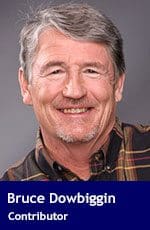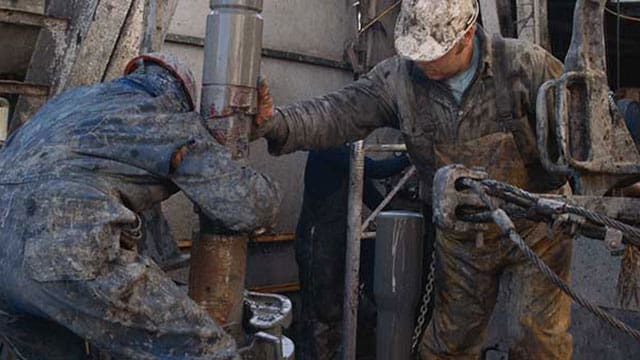Alberta is ready to fight against Trudeau’s draconian efforts to destroy energy development in the province
Fact: Alberta and Saskatchewan were to enter Confederation in 1905 as a province named Buffalo. But Sir Wilfrid Laurier feared a landmass that big would threaten the domination of Quebec and Ontario in Canada. And so Buffalo was split into the two provinces we know today.
 Of all the riddles that make up Canada’s current prime minister, one of the most intriguing is how the grandson of a man, Charles-Émile Trudeau, who made his fortune in Montreal gas stations, is now hellbent on destroying the same industry.
Of all the riddles that make up Canada’s current prime minister, one of the most intriguing is how the grandson of a man, Charles-Émile Trudeau, who made his fortune in Montreal gas stations, is now hellbent on destroying the same industry.
In this obsession to end fossil fuels, Trudeau does have the company of many other heirs to fortunes created by oil and its products. The ranks of Green NGOs and political movements are thick with names like Rockefeller, Getty, Morgan, Flagler and more, heirs with a guilty conscience about perceived climate-change destruction.
But while most of these families have chosen discreet roles in their quest, Trudeau’s climate infatuation has propelled him to the prime ministership of Canada since 2015. In that time, “Sunny Ways” Justin has obsessively pursued his goal of transitioning Canada from a fossil-fuel giant to an imagined Shangri-la of gentle breezes and warm sunshine.
 |
| Related Stories |
| Trans Mountain boosts Indigenous participation with 3,100 hires
|
| A proposal for the future of the petroleum industry
|
| Canadians pay the price for Trudeau’s carbon-tax failure
|
Nothing can shake him of his messianic role as saviour of the Frozen North. Likewise, no public disgrace or controversy can shake his loyal supporters who supported his father in the same manner. Buttressed by the lapdog NDP caucus, he spouts buckets of enviro-nonsense to a docile media (which he has bribed to stay quiet).
Because subtlety is not his strong suit, he even named a former Greenpeace zealot and convicted felon as his Environment minister. This has naturally put him directly at odds with that portion of the country that exploits fossil fuels and (don’t tell anybody) floats the boat of federal budgets.
So when Justin proposed a Canadian Sustainable Jobs Act to turn energy workers into code writers and social workers by 2035, there was a degree of pushback amongst those who would lose their livelihoods. That plan was revealed recently by EnerCan (who makes up this dreck?) minister Jonathan Wilkinson.
Promising to convert Calgary’s public transit to all-electric, Wilkinson (former leader of the New Democratic Party’s youth wing in Saskatchewan) proposed the ‘Sustainable Jobs Act’ advisory council that will provide the federal government with recommendations on how to support the Canadian workforce during the transition to a ‘net-zero economy.” You can guess who’ll be on the advisory council, but don’t count on any Ford F-150 drivers.
Enter Danielle Smith, newly re-elected premier of Alberta. Smith and her advisors have declared the federal government’s unilateral prescription for a carbon-neutral society by 2050 as unworkable. While they recognize the need for transition, the Alberta solution is predictably less draconian than Trudeau’s Pol Pot prescription for moving the population back to a more bucolic lifestyle.
Specifically, Alberta wants “to achieve a carbon-neutral energy economy by 2050, primarily through investment in emissions-reduction technologies and the increased export of Alberta LNG to replace higher-emitting fuels internationally.” (Presumably, Alberta will be joined by Saskatchewan in this pushback.)
Then came the hammer. “As the development of Alberta’s natural resources and the regulation of our energy sector workforce are constitutional rights and the responsibility of Alberta, any recommendations provided by this new federal advisory council must align with Alberta’s Emissions Reduction and Energy Development Plan.”
Translation: Federal legislation has to be in sync with provincial plans, not the other way around. Don’t like it? See you in court. In Alberta. Not Ottawa.
Will this constitutional gambit work? While Smith’s mandate from the recent election is hardly rock-solid, she does have the benefit of time in her four-year term. Trudeau has no such luxury, and launching a court case in Alberta would likely stretch past his mandate ending next year.
Yes, the impertinence of Alberta would play well with his base in the 514/613/416. But let’s be honest; they are voting for Trudeau even if he (in the words of Donald Trump) grabs them by the privates.
One thing you can be assured of when it comes to the Trudeau. He will not be forcing any Canadian Sustainable Jobs Act on the Ontario auto industry to aid its transition to EV vehicles. There will be no helpful suggestions on the death of the automobile for the new multi-billion dollar VW battery plants cashing federal cheques in Windsor. He knows his voting base won’t buy it. But those Alberta saps?
The telling impact of this jurisdictional fight will be where Trudeau’s rival, Pierre Poilievre, comes down on the transition issue. With his election depending on the swaths of voters in the GTA shoulder ridings – where Trudeau’s mooting about crybaby Alberta will get a full airing – does he lend his support to Smith’s pushback?
Put simply, is backing Alberta sovereignty in the oil patch a vote-loser for a party still looking past “Hate Trudeau” as an election platform? You could see Poilievre rationalizing that he’ll get the seats in the West no matter what, so why not leave Trudeau to wrestle the Alberta bear alone?
Risky for sure. But if he gets the PMO seat in 2024, Poilievre can always play kiss-and-make-up later with Smith and her government.
Can’t wait.
Bruce Dowbiggin is the editor of Not The Public Broadcaster. A two-time winner of the Gemini Award as Canada’s top television sports broadcaster, he’s a regular contributor to Sirius XM Canada Talks Ch. 167. Inexact Science: The Six Most Compelling Draft Years In NHL History, his new book with his son Evan, was voted the eighth best professional hockey book by bookauthority.org. His 2004 book Money Players was voted seventh best.
For interview requests, click here.
The opinions expressed by our columnists and contributors are theirs alone and do not inherently or expressly reflect the views of our publication.
© Troy Media
Troy Media is an editorial content provider to media outlets and its own hosted community news outlets across Canada.